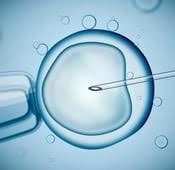
Causes of ICSI Failure and How to Avoid Them Insights from Dr. Ehab El-Tayeb
Published on: 2025-06-29 | Written by: Dr. Ihab El-Tayeb, Consultant of Obstetrics, Gynecology and IVF
Dr. Ehab El-Tayeb, Consultant in Obstetrics, Gynecology, IVF, Oncological and Cosmetic Gynecological Surgery, Fellow of the Royal Colleges in London and Dublin, and holder of the European Board in Gynecologic Oncology and Pelvic Reconstructive Surgery (EBCOG – Brussels), explains the most common causes behind ICSI (Intracytoplasmic Sperm Injection) failure and offers expert strategies to improve success rates.
What Is ICSI?
ICSI is one of the most advanced assisted reproductive techniques, commonly used in cases of male infertility or failed natural fertilization.
It involves injecting a single sperm directly into a mature egg under a microscope, then transferring the resulting embryo(s) into the uterus.
What Causes ICSI Failure?
According to Dr. Ehab El-Tayeb, failure doesn’t always indicate a mistake; it may result from several underlying factors, including:
1. Poor Egg or Sperm Quality
Even with ICSI, if the gametes are of poor quality, fertilization may fail or result in non-viable embryos.
2. Embryonic Genetic Abnormalities
Embryos may look morphologically normal but carry chromosomal abnormalities, preventing successful implantation.
3. Poor Endometrial Receptivity
This may be due to undiagnosed infections, hormonal imbalances, or insufficient uterine blood flow.
4. Suboptimal Embryo Transfer Timing or Quantity
Dr. Ehab El-Tayeb highlights that the timing and number of embryos transferred are critical to success.
5. Immunological or Clotting Disorders in the Woman
Conditions like autoantibodies or blood clotting tendencies can interfere with embryo implantation.
How to Reduce the Risk of Failure – Advice from Dr. Ehab El-Tayeb:
-
Thorough Pre-Cycle Evaluation
Including hormone analysis, advanced ultrasound, and immune and clotting tests to personalize the treatment plan. -
Customized Ovarian Stimulation Protocol
Tailored by Dr. Ehab El-Tayeb according to age, ovarian reserve, and egg quality. -
Preimplantation Genetic Testing (PGT)
Especially in cases of recurrent failure or advanced maternal age. -
Treating Uterine Issues Before Transfer
Such as infections or polyps via hysteroscopy and uterine preparation. -
Optimizing Endometrial Thickness and Blood Flow
With hormonal support and ultrasound monitoring. -
Managing Immune or Clotting Disorders
With medications like aspirin or heparin as needed.
Can You Try Again After a Failed Cycle?
Yes—and often, subsequent attempts are more successful, especially if the cause of failure is clearly identified and corrected.
Dr. Ehab El-Tayeb emphasizes that every patient deserves a personalized protocol based on their medical history and past response.

